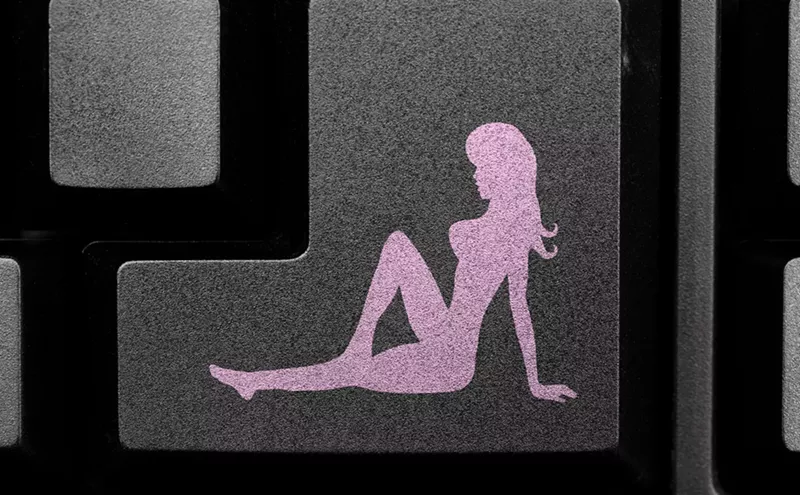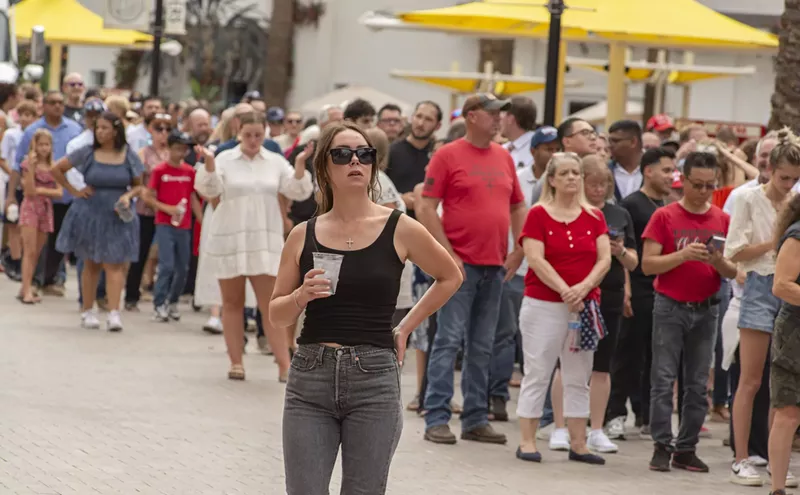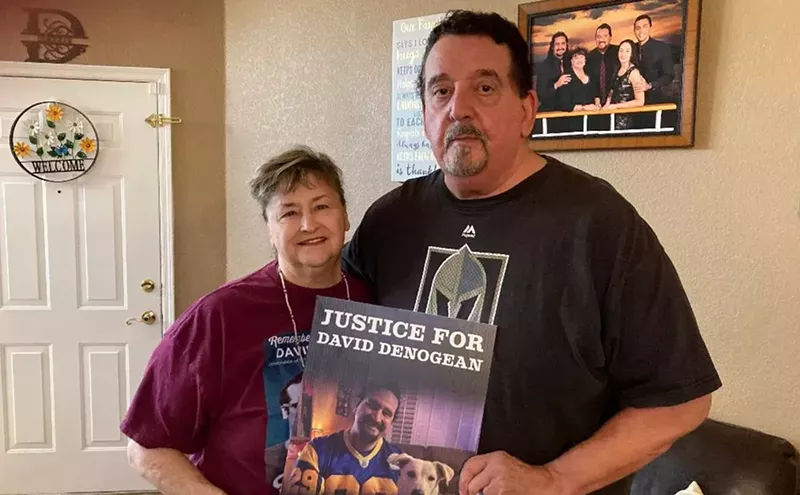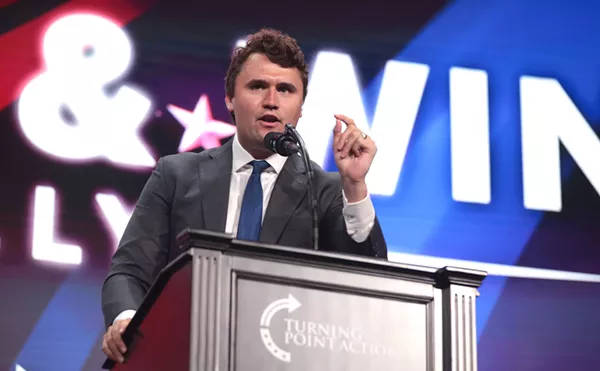"I heard two shots," says Jack, who recognized the gunfire readily and was jolted. He knew that Justin Monroe, a stone killer, was in the living room with "White Boy," who was armed with a pistol.
Although Jack, 26, was fully cranked, he remained calm.
"I stood still in the hallway," recalls Jack, who waited to see who would come out of the living room and, more important, what he would do.
"Monroe jumped out of the living room and bullets were just vanishing," says, Jack, describing how Monroe shot at him and missed. "I cut the lights off and he froze. I ran behind the bathroom door and slammed it shut. My kids hid behind the shower curtain.
"He fired three times through the door. The first bullet missed. The second and third bullets hit me in the mouth and chin."
Incredibly, neither of Jacks's babies were killed. Nor did they scream out.
"My kids were quiet," says Jack. "The spirit was on them. They didn't make a sound."
Not only were the children spared, they were not so much as scratched by the sizzling gunfire.
Jack was so hyped that he did not realize he'd been shot until his kids and his wife told him he was covered in blood.
By the time Jack staggered to the living room, White Boy was sprawled on the floor, dead, and Monroe was out the door and shooting at Gloria and Tammy Moore, who'd been hanging out in front of the apartment.
Monroe wounded Tammy as well as Gloria's 2-year-old daughter, Elizabeth.
It was February 9. Today, Justin Monroe sits in Madison Street Jail, accused of murdering Eric Ransom (White Boy) and attempting to murder Gloria, Tammy and Elizabeth Moore. And Larry Jack.
Although Monroe professes his innocence, Jack claims that all the adults on Pueblo knew that Monroe had murdered four people on nearby Chipman Street just 48 hours prior. That assertion corroborates one made to me last week by Howard Youngblood, who lives in a rental on nearby Chipman Street where four people were executed on February 7. Youngblood says he left that apartment on February 6, because he "had a funny feeling that something bad was going to happen."
Jack says that Gloria Moore confronted Monroe when he showed up at the Pueblo drug den.
"Gloria called him a murderer," he says.
The killer tried to put her off.
"He said he'd already done his time for that," Jack says.
(In 1997, Justin Monroe shot a 22-year-old to death, and he spent some time in jail before the killing was ruled self-defense.)
"She said, 'Nah, I'm talking about over there, Chipman.'"
On the night that four people on Chipman were cut down with a military assault rifle, Justin Monroe was seen going into and out of the crackhouse. The cops know this, too, but the witnesses are hardly model.
"We've talked to people who place him [Monroe] there," says one police source.
And everyone in the 24th Street and Broadway neighborhood who knew what was going on had seen Justin Monroe parading around the week of the killings with a fully automated SKS assault rifle.
The police have since served several search warrants, looking for the weapon.
"Everyone was smoking Sherm (PCP) over at Chipman," says Jack, who claims that those who saw Monroe around the time of the four Chipman murders were themselves drug users.
"By killing us, no one would know he'd done Chipman," says Jack. "He thought he was going to kill everyone and get away, but it didn't turn out like on Chipman."
It was a bloody week. All told, five people were killed and three were wounded at what Jack admits are crackhouses. All of the victims were tied to the Broadway Gangsters, the crew that runs the local real estate.
While Jack claims that the shootings on Pueblo were an attempt to ensure silence, he believes that the spree of February homicides is payback from enemies of the Broadway Gangsters.
Prior to this recent and highly publicized outburst of violence on Chipman and Pueblo, Jack says, the Broadway Gangsters shot and killed a Park South Crip known as "Bo" because, "The Crip shot at them. He was doing a lot of shooting and getting away with it."
If you ask on the street, you'll hear that following the Crip's death, the police snatched two Broadway G's, "Big Daddy" and "Jimbo," and are looking for three others, "KG," "Little Rocky" and "Dirty Red."
Jack thinks the Crips weren't inclined to wait for justice. Justin Monroe, he says, was an assassin.
"He was hired to kill as many Broadway Gangsters as possible," Jack alleges.
Jack claims Monroe floated back and forth between both gangs. He hung with Broadway Gangsters and even dated Jack's sister. He also claimed family ties to the Park South Crips, according to Jack.
And the young man that Monroe shot to death in 1997 was a Broadway Gangster.
Given Monroe's history, and with all the adults at Pueblo believing that he'd just massacred four people a mere 48 hours earlier at the Chipman crackhouse, how did Justin get past the front door on February 9?
"Monroe lifted his shirt," says Jack, "to show everyone he didn't have a gun."
But still.
"That's how busy the devil was that day," explains Jack. "Monroe took my cousin, Puka, who he likes, to the Salvation Army so he wouldn't be around when the shooting started. We didn't recognize that. It didn't hit our mind. Should have."
Of course, rational thought and sensitive concern for security are not a crackhouse's hallmarks. How did Justin Monroe get in? The better question is, What were three babies, the two in the bathtub and the one out on the stoop, doing at the crackhouse?
Their parents brought them.
The accuracy behind Jack's take on the violence in South Phoenix is problematic; as police try to sort out the truth, they must rely on the statements of addicts addled by crack and PCP, homicide witnesses who disappear or forget what they saw and gangbangers who sport automatic weapons and are whipsawed by rumors.
In any case, the fact that most of us were unaware of a war between the Park South Crips and the Broadway Gangsters is a mark of how dysfunctional the city's approach to gangs and crack is.
City fathers neither challenge the gangs nor raise an alarm about the drug trade. Kids with too little to do are not channeled into enough anti-gang programs; those with drug problems have few options. When the press writes about the violence, reporters and editors meekly follow police guidelines and self-censor gang affiliations.
The average Phoenician has never heard of the Broadway Gangsters or the Park South Crips.
"Generally, we have had a policy, in accordance with the police department, of not naming gangs," says Richard de Uriarte, the Arizona Republic's "Readers Advocate."
He says, however, that the state's newspaper of record recently broke with policy and identified the two gangs, "because we felt the rivalry was integral to the story."
Actually, a Nexis search of the Republic's coverage showed that of the dozens of articles published on the Chipman-Pueblo shootings, only one passing reference linked the two gangs. In fact, the reporting was so far removed from reality that the one gang was labeled the "South Park Crips," a mistaken reference perhaps to the cable cartoon show South Park.
And describing the bloodletting between the Park South Crips and the Broadway Gangsters as a "rivalry" highlights the problem. The Los Angeles Dodgers and the San Francisco Giants have a rivalry. The gangs kill and maim each other and anyone who gets in the way.
Such indifference from the state's largest newspaper and by community leaders to the complexity of gang society and the role of drugs hardly leads to substantive public discussion of remedies. Far from signaling the need to address critical issues, press coverage tends to underscore the impression that it's simply anonymous packs of Mexicans and Blacks randomly killing each other. Conventional wisdom holds that there is no possible explanation, and therefore, no possible civic solution, to the homicides and addictions.
Not surprisingly, those mired in gang violence and crack dependency find little help at City Hall.
Larry Jack, for example, found salvation, not with Mayor Skip Rimsza, but rather with his Lord and Savior.
Larry Jack found Jesus while recovering from his wounds. Shot twice in the head, every breath he takes is indeed some sort of miracle.
Of course, deathbed converts are suspect. For every angel that hovered in Jack's hospital room, it is also true that a detective lingered to ask pointed questions about the orgy of homicide that gutted South Phoenix last month.
Jack denies that he is a member of any gang, including the Broadway Gangsters.
"I don't gangbang with them," says Jack. "It's just that the cops say that 'cause I'm in the neighborhood, that I'm a gangbanger. If anything, I be a pimp."
Jack began his career on 24th Street and Broadway at Keys Market when he was only 15. At the time, Bloods and Crips from Los Angeles peddled crack at the notorious South Phoenix intersection.
"Both groups liked me," says the charming Jack. "I ended up watching out for their stash."
Redemption for Larry Jack--an admitted pimp, suspected drug dealer, accused gangbanger--would be good news for Jesus and great news for the neighborhood.
Whether Jack's conversion is a dodge of law enforcement or the first step toward heartfelt atonement, the bottom line is that Christ presents Jack with more possibilities than the City of Phoenix, which offers little in the way of practical programs to alleviate the violence and drug peddling at 24th Street and Broadway in South Phoenix.
"The Lord has called me to preach," says Jack.
Jack had plastic surgery to put his face back together. On February 13, he had an epiphany.
"I was reading the word and I felt, when I got to Luke and John, the ministry came upon me.
"It was like a starlight flashing. I was just imagining myself preaching and teaching the word. There is more to it, but the Lord is still revealing it to me."
The feeling was so profound that Jack remembers the exact time of the revelation.
"It was 9 p.m. He saved me when I had one foot in the grave. I realized that my time was running out. The world is trying to destroy me, and that is not what I want."
What he wants, he says, is to turn his life around and save others like himself.
"I'm studying with my pastor."
Jack did not know the name of his minister--such was the suddenness of his calling--and had to look it up on the day he was to attend his first religious session with the Reverend Horace Benton.
As it turned out, Jack was just flustered, talking to the press. He knows the minister well enough. It is his uncle.
Benton has preached on Phoenix's toughest streets. He's witnessed on Lower Buckeye and at the intersection of 24th and Broadway. He has set up metal chairs outside the housing projects and felt the power of Christ as people collapsed beneath his soul-cleansing hands.
"They were slain by the spirit of the Lord," declares Reverend Benton.
Benton's wife, who is also a minister, is the sister of Larry Jack's father.
"Those children grew up without their father, who did not acknowledge them because he had another family," Horace Benton explains. "Larry, his brother and his sister all started selling drugs at an early age. They don't take drugs. They just sell it. They only made enough money to survive."
In that regard, Benton claims that Larry Jack is like a lot of people at 24th Street and Broadway.
"Everybody there is trying to sell a little crack. You drive by, they'll wave you over, try to sell you something. Those people are trying to make a quick buck. But it's a small buck. It's about some clothes, some food, a place to stay."
Founder and president of the Highways and Hedges Evangelistic Ministry Incorporated, Benton is convinced of his nephew's sincerity.
"I've seen so many phony conversions," says Benton. "I can tell a phony. You have spiritual discernment. He is anti-street.
"There are two reasons I'd vouch for him. He is not going to jail behind this. He didn't commit the crime; he was the victim. And it would be so easy for him to go back to what he was doing, and he's the one bugging us for the training."
Jack joined Benton's church on Sunday, March 14, and, according to the minister, the conversion is from the soul.
"He is dead serious," says the pastor. "The type of church I minister is not a lukewarm thing. People speak in tongues. People prophesy. In my opinion, he is 110 percent dedicated."
Others in need of help, particularly those addicted to crack, or PCP, cannot muster 110 percent commitment, like Jack, to straighten themselves out. Even a holy man like Benton, who has "slain sinners for Christ," acknowledges that he can't help an addict until the addict goes into a recovery program.
"Even as a minister of deliverance," says Benton, "you can't beat them over the head with a Bible."
He refers addicts to Ebony House.
The most tragic--and still breathing--victims of 24th Street and Broadway, the crack whores, the sherm hounds, the exhausted addicts, eventually find their way to Ebony House, a 14-bed center focused upon, though not limited to, African-Americans.
"We are the only residential facility in South Phoenix," says Bill Freeman, executive director of Ebony House, founded in 1975 by three alcoholics.
How much money does the City of Phoenix provide to Ebony House to treat crack addicts?
"I'm not aware of any," says Freeman.
He went on to say that the only money that Phoenix does provide is $10,000 a year for emergency intake of homeless people who are substance abusers.
But no money is provided directly to treat crack addiction.
"We have a major problem in Arizona with treating behavioral health problems," acknowledges Alton Washington, Phoenix's deputy city manager.
State and county funding of behavioral health problems are so inadequate, Washington says, that the courts have seized control, with little to show for it.
"Without service," says Washington, "the addicts are left to fend for themselves, and the temporary solution is to lock them up and create a revolving door situation that the neighborhoods are left to deal with. It's not good at all."
Reverend Benton believes the hand of the City of Phoenix is invisible at 24th Street and Broadway.
"The city has done nothing. . . . We need the city to just donate a building in South Phoenix so that we can help these people."
Larry Jack wants to help his uncle.
"God saving my life is something to cherish," says Jack. "The shooting was the worstest thing that could possibly happen to me. I don't have no more chances. I just made up my mind I'm going to serve him."
Larry Jack has a message for his fellow players in South Phoenix: "Christ died for our sins. We have to repent."
Those most in need of repentance are nowhere to be found.
"A lot of people are out of the neighborhood right now," says Jack. "It ain't all died down yet. They thinking. Eventually they be back. Who knows what they'll do?"
Last Saturday night, not 100 yards from 24th Street and Broadway, Larry Jack raises his hands to Jesus.
Inside Faith Tabernacle Church of God in Christ, where Jack rocks upon the balls of his feet, Jesus is open for business.
"It's been two dead bodies sitting right here," screams the minister, reminding the faithful of the recent funerals.
"It could have been you! God deserves just a little bit of praise."
As the organ swells to a pitch and then sustains the passion, a young woman in a smart hound's-tooth suit, a tear upon her cheek, shuffles rapidly, back and forth, the length of the pew like a typewriter carriage.
Larry Jack, handsome in his church grays, hair pulled back into a small ponytail, dances in the aisle, his elbows high behind his back.
Outside, as the shadows deepen toward midnight, it's difficult to make out the shapes on 24th Street and Broadway. Rainbow Market is shuttered. But next door, the shack with the Chinese food to go is open. Light from the liquor store reflects onto the crowd clotted upon the sidewalk, and this congregation, no smaller than the one inside the church, is shouting, too.
They want you to know they've got it, if you want it.
Contact Michael Lacey at his online address:[email protected]












